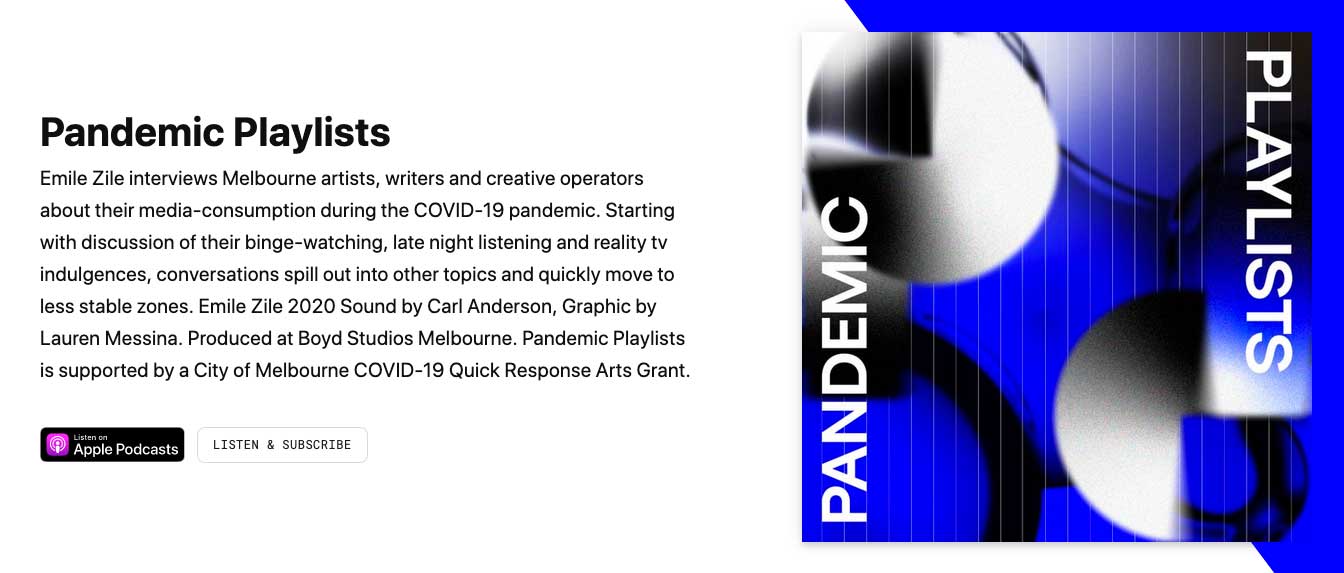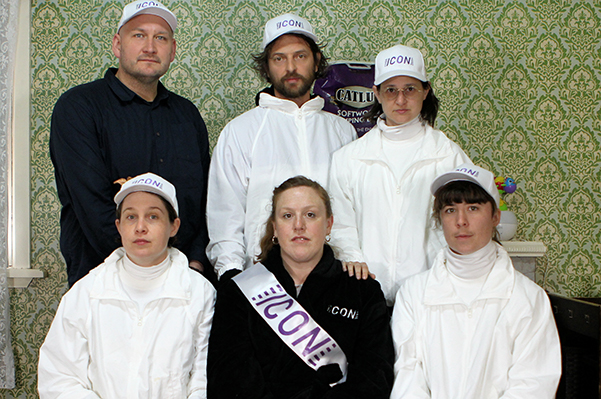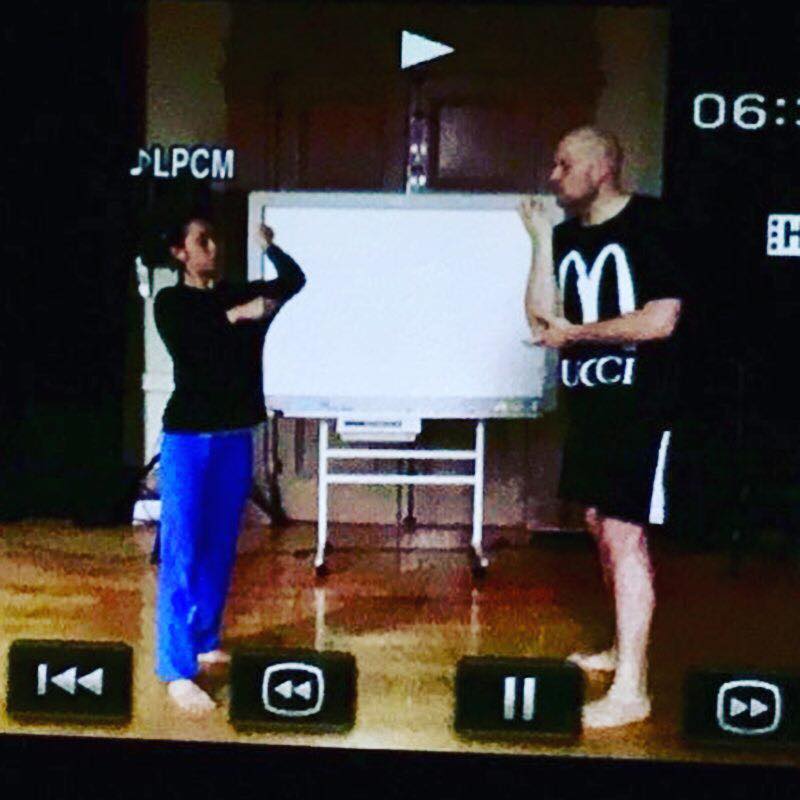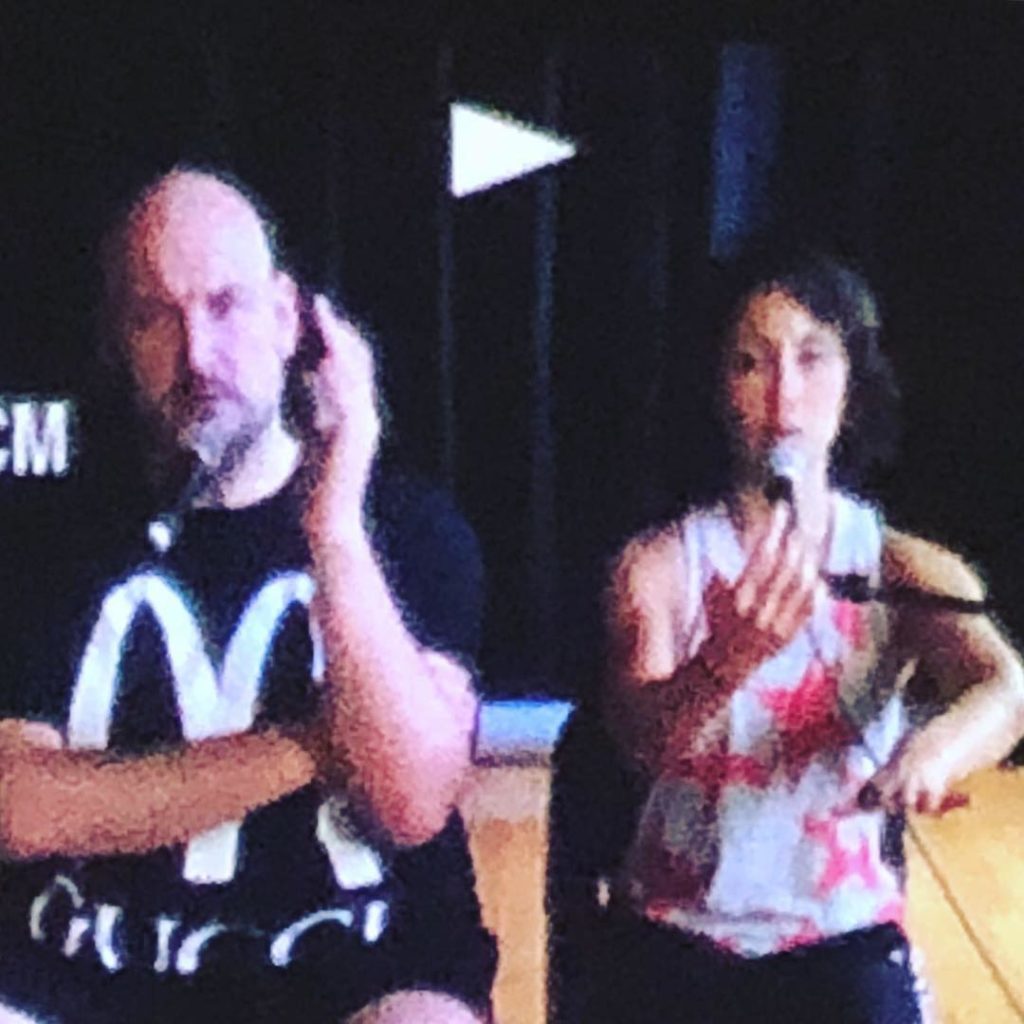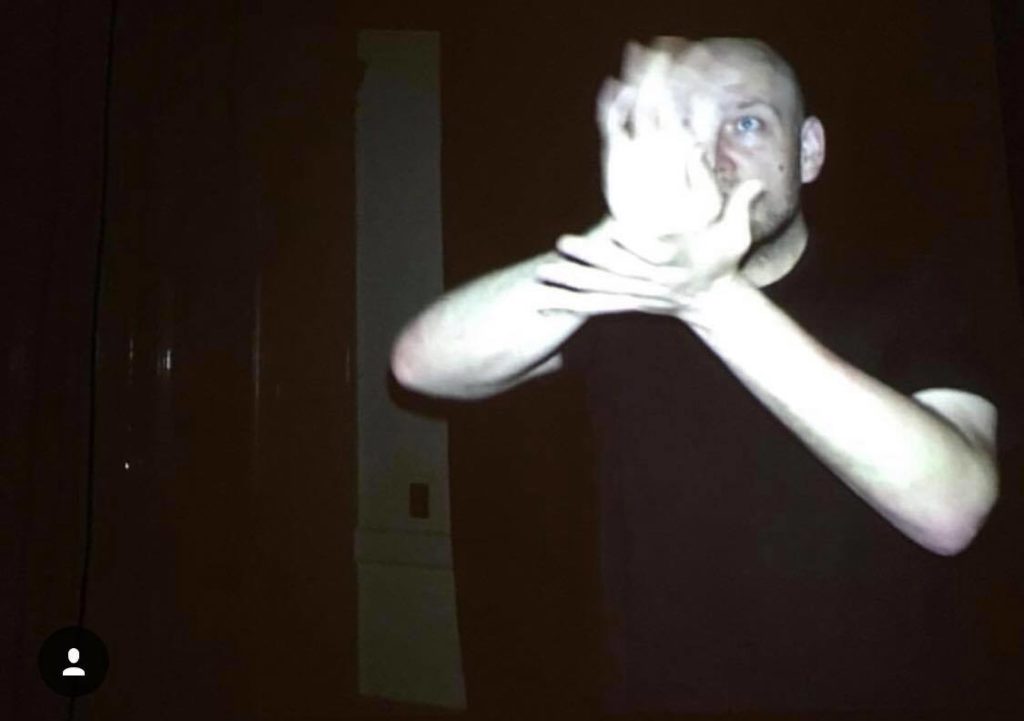I am producing a series of podcast interviews and a live weekend of events for Melbourne Art Book Fair, Melbourne Design Week commissioned by the National Gallery of Victoria. Full event program below, the live event will be streamed via NGV website.
https://www.ngv.vic.gov.au/program/event-print-screen-new-publishing-now/
Podcast audio production by Carl Anderson, Graphic Design by Lauren Messina
Melbourne artist Emile Zile hosts a podcast series and live event for Melbourne Art Book Fair and Melbourne Design Week at the NGV.
Looking at the state of alternate publishing and new forms of distribution, PRINT SCREEN will host discussions on the widespread disruption of traditional media channels and the accelerating digitisation of shared cultural consumption. Via podcast and live forum PRINT SCREEN will open up a vital discussion on the new waves of publishing and promotion that are located in simultaneously public and private realms.
What are the possibilities for new forums of cultural dispersion? Is there any escape from software after Covid? Where is the new gatekeeper? Who is making new claims? Is this moment of destabilisation a significant opportunity to reimagine publishing?

Saturday 27 March – Great Hall, NGV International
12-1.15pm
Newsletter DJ (Tiesto) LG Hill
Christopher LG Hill plays his newsletter live and direct, chopping download links and slinging .zip archives. Taking his esoteric and wide-ranging email newsletter as a starting point, Melbourne artist, publisher and musician LG Hill flips the great (dance)hall on its ear for Melbourne Art Book Fair.
Listen to Emile Zile interview Chris at Print Screen podcast.
https://disclaimer.org.au/contents/one-year-of-a-link-based-email-newsletter
https://printscreen.simplecast.com/episodes/christopher-lg-hill
1.30-2.45pm
NFT fireside chat with Joe Hamilton and Nic Hamilton
Digital Artists Joe Hamilton and Nic Hamilton talk about their individual video practices and the newest category of commercial art, the NFT. Join us for a jargon-free primer for those curious about all that is non-fungible.
Followed by audience Q+A
https://foundation.app/joehamilton/hyper-geography-7426
https://www.nichamilton.info/collection
Sunday 28 March – Great Hall, NGV International
12-1.15pm
Digital Self-Publishing with Amelia Winata, Diego Ramirez and Anador Walsh
Art Criticism is migrating online, join leading local writers and editors to discuss digital art criticism, self-publishing and the challenges and limitations of being very online.
With Amelia Winata of MeMO review, Anador Walsh of Performance Review, Diego Ramirez of Running Dog
Followed by audience Q+A
https://memoreview.net/
https://www.performancereview.online/
https://rundog.art/
1.30-2.45pm
Static Bodies, Networked Bodies with Shian Law, Lilian Steiner, Harrison Hall and Sam Mcgilp
During COVID-19 dancers found new ways to move. How did dancers and choreographers publicise and distribute themselves under pandemic conditions? What was learnt in the great pivot to digital, what is to be kept? What is to be left in 2020?
Followed by audience Q+A
With Shian Law, Lilian Steiner. Harrison Hall and Sam Mcgilp
https://www.ngv.vic.gov.au/melbournenow/artists/shian-law.html
https://harrisonhall.com.au/
https://www.sammcgilp.com/
http://www.liliansteiner.com/

